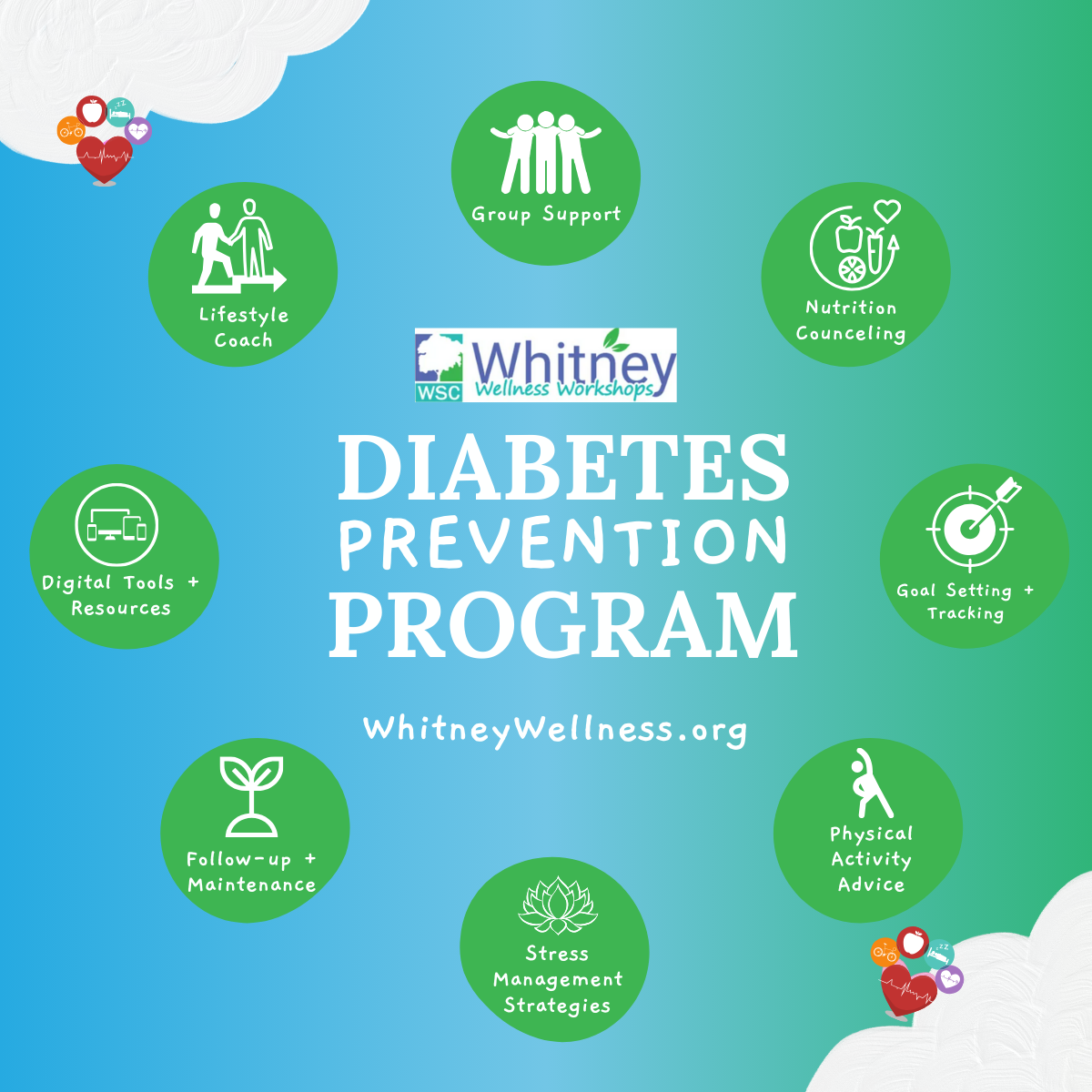New Year, Healthier You
New year, healthier you! Don’t let type 2 diabetes become a part of your future.
Have you thought about your resolutions for the new year? This year, put healthy living at the top of your list. You don’t have to make drastic changes. You can incorporate healthy habits into your daily routine to improve your health and reduce your chances for developing type 2 diabetes. Wondering where to begin? Here’s what you can do.
First, learn your risk for type 2 diabetes.
Could you have prediabetes? If so, you’d be part of more than 1 in 3 adults who has this serious health condition where blood sugar levels are higher than normal, but not yet high enough for a type 2 diabetes diagnosis. Prediabetes increases your risk of developing type 2 diabetes, as well as other serious health problems. The good news is that you can frequently reverse prediabetes with healthy lifestyle changes.
The first step to a healthier you is to know whether you’re at risk. Take a one-minute risk test at cdc.gov/diabetes/risktest to find out your risk. Your doctor can also run a blood test to see if you have prediabetes.
Then take action.
If you find out that you have prediabetes or have a high risk of developing type 2 diabetes, start taking steps to improve your health. Make an action plan of specific ways that you can eat healthier and exercise more in the new year. Here are some ideas:
- Eat healthier: Choose non-starchy vegetables, fruits, and lean proteins over processed foods, trans fats, sugary drinks, and alcohol. Don’t try to do too much at once – make a plan that you think you’ll be able to stick to.
- Exercise more: Find an activity that you enjoy and set a goal that works for you. Gradually work up to being active at a moderate intensity for at least 30 minutes, 5 days a week.
Write down your action plan to help you stay accountable. Make sure your plan is realistic, specific, flexible, and enjoyable!
You don’t have to do it alone.

Making a change isn’t easy, and you don’t have to do it alone. Whitney Senior Center, part of the CDC’s National Diabetes Prevention program, offers a lifestyle change program online and at multiple community locations around the St. Cloud, MN area that can help you learn the skills you need to get healthier and reduce your risk of developing type 2 diabetes. In the program, participants work in a group with a trained lifestyle coach to learn how to make long-term changes.
It’s a new year. Get started on your healthier life – find all our upcoming workshops HERE.
Ready to register? Fill out our Registration Form.
Know someone who could benefit from this workshop? Fill out our Referral Form!
Need help registering or have questions? Call us at 320-650-3082
This program is funded in part by the State of MN Department of Human Services Live Well at Home grant, and the Older Americans Act through the Central MN Council on Aging.


